A pregnant peasant woman seeks redress from the Chinese bureaucracy after the village chief kicks her husband in the groin in this comedy of justice. As she is frustrated by each level of the hierarchy and travels farther and farther away from the countryside, the viewer is also provided with a look at the changing Chinese society through the Verite camera used in most scenes. ~~ Adapted from the novel "Story of Qiu Ju" (秋菊传奇) by Chen Yuan Bin (陈源斌). Edit Translation
- English
- Türkçe
- magyar / magyar nyelv
- dansk
- Native Title: 秋菊打官司
- Also Known As: Qiu Ju Da Guan Si , Qiu Ju Goes to Court ,
- Director: Zhang Yi Mou
- Screenwriter: Liu Heng
- Genres: Comedy, Drama
Reviews

A very important movie in the Zhang Yimou-Gong Li filmography
This was a groundbreaking movie of Zhang Yimou, with a formidable Gong Li starring as the peasant heroine of the late 1980s. It was spot on. So many things I could compare to real life back then, and yet a good story.Qiu Ju goes to court had both comedy and tragedy, together with being a mirror to the bygone era of teeming masses.
The music is almost exclusively folk tunes and Chinese opera excerpt, and the sounds are real life, so it is very realistic.
With the new drama "The Story of Xing Fu" translating the story into the 21st century, this movie is worth rewatching again for comparison. In the new story, the countryside is more tame, despite the lingering rural-urban divide, which was poignant in the movie.
Was this review helpful to you?

This review may contain spoilers
Pride or Justice?
This story reminded me of Ikiru when Watanabe tenaciously visited department after department each hidden behind a wall of red tape to get a park built. Qiu Ju, the title character, quietly, persistently confronted the ever-expanding layers of legal hierarchy to gain satisfaction after her husband was kicked in the chest and groin by the village chief over a supposed slight. All she wanted was for the stubborn chief to admit what he did was wrong and apologize which was something he refused to do.Poor farmers and living above the snowline, Qiu Ju sold much of their chili crop to have money for her trips to significantly larger towns as she implored officials to resolve her case satisfactorily. From the beginning each of the officials agreed that the chief needed to pay for her husband's medical bills and lost wages. Qiu Ju didn't want the money, she wanted an apology, but the chief managed to offend and belittle her at every encounter. The story began to feel repetitious as Qiu Ju and her sister-in-law traveled to the next city and next official in hopes of gaining justice.
Qiu Ju was the irresistible force and the chief was the immovable object, both stubborn and prideful. Qiu found out what many have before, that people in power rarely admit to wrongdoing and would rather hand over money instead of losing face. Near the end of the film as Qiu Ju gave birth and the chief was called upon to help because her life was in danger, the interconnectedness and interdependence of those living in the remote village came into clearer view. In the final scene, she was forced to weigh her actions when the consequences were doled out. The film finally scratched below the surface of Qiu Ju's journey. Perhaps in the end both learned a lesson in prideful actions and the importance of community.
Zhang Yi Mou is known for his gorgeous settings and color saturated scenery. This was a more beige film with the demarcation between snowy mountain village and urban city quite stark. The village could have been from 50+ years ago with the large wheel barrow carts, bicycles, and occasional motorized cart. The modern (1992) city in contrast was loud, crowded, and busy. The sisters-in-law stuck out with their simple clothes. ZYM filmed the crowds clandestinely, giving an authentic view of the bustling streets. Posters of both Chinese and American movie stars covered walls. It was interesting to see how the wheels of justice moved for those with the least power, but color me cynical at believing each layer of law enforcement justice would move as quickly, politely, and seriously for a peasant woman who in essence was only seeking an apology.
I've read this film is considered a comedy, but I failed to see it with the exception of one scene where Gong Li was told to buy new clothes so that she wouldn't be targeted by scammers. She ended up purchasing a large striped blazer which should have been considered more of a tragedy than comedy as it further hid her body and made her look even more like a gullible country bumpkin. Between the pregnancy pads and an enormous green scarf wrapped around her head it was hard to recognize her in some scenes. A close-up of Gong Li's beautiful face was not even used until the final shot. Despite having her face nearly obscured for much of the film, her charisma shone through as the uneducated, dutiful wife who despite her husband's protestations, would not let go of her need to hear from the chief that they had been wronged and it was not in his power to physically abuse her husband. There were only a handful of actors in the film, the rest were local people, much like in Not One Less. Liu Pei Qi represented well the patient long suffering husband who saw their store of peppers quickly dwindling as Qiu Ju monetized them in her quest for justice. The village though desperately cold was warm with human compassion as her husband's family and the chief's family all got along well and worked well with each other with the exception Qiu and the chief. Overall, it was a gentle law and order slice of life.
As an historical window into 1990's China, The Story of Qiu Ju was informative showing the busy market places and traffic and the snowy paths the neighbors' walked up the mountain to the little farming village. Viewing a Gong Li performance is always worthwhile. But in the pantheon of Zhang Yi Mou films, I found this one to be less than enthralling as Qiu traveled from city to city beseeching officials who repeatedly gave the same answers. There weren't any bad guys, with the exception of one con artist, the people Qiu met were polite and helpful. Even the chief came through when it counted. Qiu began to look more petulant and obsessed as the film went along. While I could appreciate Qiu Ju's quest for justice, at some point, much like the chief's stubbornness in not apologizing, it became a pyrrhic victory.
7/11/23
Was this review helpful to you?

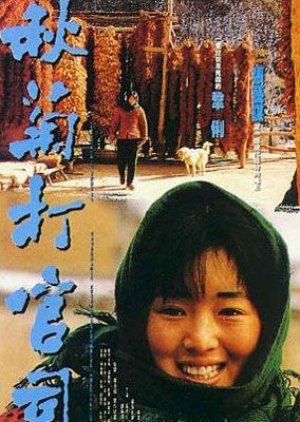


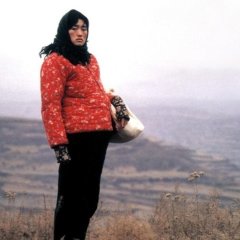
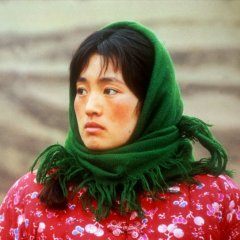
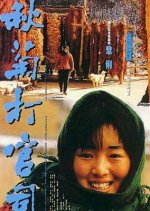







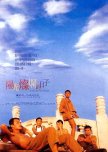
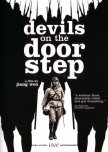
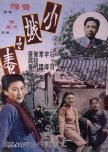
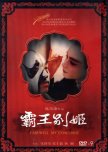
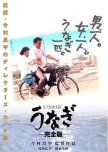

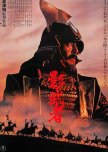
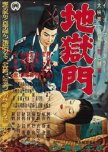
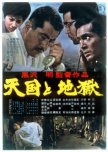

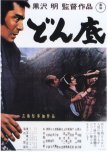
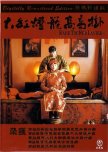



















Comments